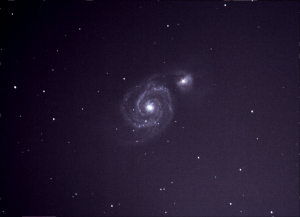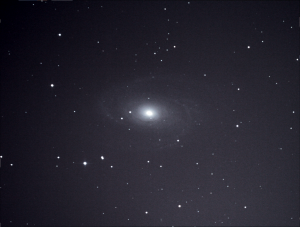I’ve been waiting for some time to see a Canon DSLR on sale so when I received an email showing a Canon 1100D + lens + memory card more than £100 cheaper than the body only deals I’ve been looking at, well I couldn’t wait any longer and dipped into my savings. WOW what a difference this is going to make to the quality of my astro-images.
Slipping under the radar at a mere £20 ($30) was another addition to my observatory collection, some software called Back-Yard-EOS which it would seem from my first light session is as ground-breaking as the change of camera!
Technical stuff: being an EOS camera it fits into the adapter I was using for the 300D so I literally unplugged the old and plugged in the new. I don’t have mains power for the camera yet so I’ll be running it from the battery which means I now only have 1 cable – USB – to the camera where previously I had 3. The shutter control is through the USB now so no extra shutter release which means my DIY shutter control has been dropped into a box never to be seen again – until I need to recycle the Arduino board for another project ![]()
The new camera has a 12 Mega Pixel sensor and 14bit ADC, low noise and low amp-glow. It’s at the cheaper end of the Canon range (maybe Cheapest of the DSLRs?) but seems to have a lot of functionality for the price.
What’s new: live view!! what a difference this makes to focusing and alignment. I can drop a mask over the scope, tweak the focus and I’m ready to go – that would have taken 30 mins previously with me finally declaring “that’s close enough”. Being able to align with a zoomed cross-hair in the centre of the target star means my gotos are very precise – another area where “close enough” would have sufficed previously.
Live view support and zoomed alignment are features of BYE that I’m really liking.
Some images: so here are a couple of first lights, there was a breeze early on which accounts for some egg shaped stars and being the middle of summer my viewing window is reduced to 2 hours from mid-night, so not enough frames to make anything special but a good test of the camera under worst case conditions.


